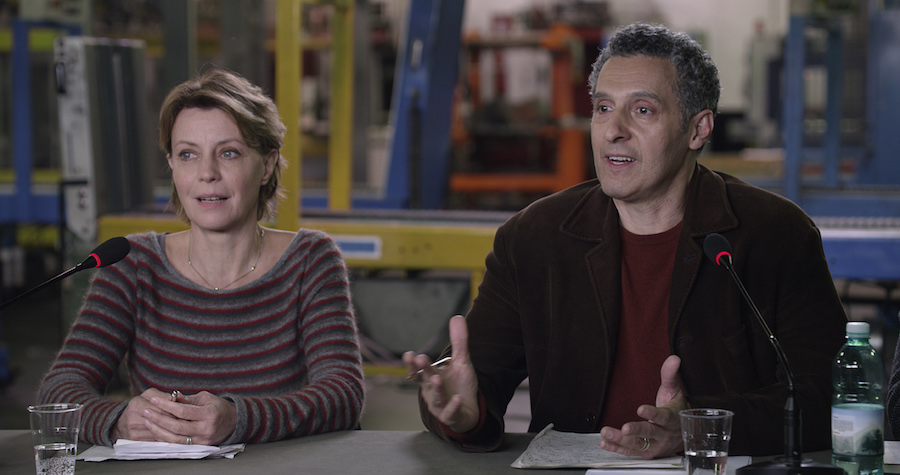‘Mia Madre’ The latest from filmmaker and actor Nanni Moretti opens with a shock. That any of his films would open with a shock is itself a shock. He is, to borrow a cheap and inexact shortcut, the Woody Allen of Italy, as strong at wry observations as creating shots that look “plain” but are precise and amusingly deadpan. And yet what do you get when “Mia Madre” kicks off? Handheld cameras, which stir up a lather as a worker’s protest turns rowdy. Then someone yells cut and we see it’s a movie-within-the-movie — yet another social realist drama from our hero, esteemed film director Margherita (played by Margherita Buy), who is very much not a Nanni Moretti. RELATED: Interview: John Turturro on “Mia Madre” and working on Italian films Perhaps “Mia Madre” will turn into the director’s “Sullivan’s Travels.” It certainly sounds like it. Like an inverted version of Joel McCrea’s hero in Preston Sturges’ comedy about seriousness, Margherita worries about repeating herself, especially since her latest film is yet another one of her movies about social injustice. But she doesn’t have time to reinvent herself. She has to deal with a film production on top of an even bigger dilemma: her grouchy mom (Giulia Lazzarini) is dying. Margherita finds herself doing double duty, visiting the hospital for her mother’s final days, then getting back on set to deal with, among other headaches, an outsized, fatuous American film star, played with game relish by John Turturro. Sometimes Moretti can’t decide which story is more important, and the jumping back and forth between two A plots can make for stuttered viewing. But his humor — sometimes mordant, sometimes amusingly banal — helps to glue it together. The commentary on filmmaking can be both broad and specific; there’s a very funny running gag about Margherita’s impenetrable direction to actors, in which she asks them to both be “in character” and stand “next to the character.” Meanwhile her mom is a grumpy spark of life right up to the end, complaining about how her prolonged hospital stay is making her dumber. As he so deftly showed in “The Son’s Room,”Moretti has a skill for observations that straddle the line between funny and tragic, as when Margherita’s brother (Moretti himself, typically dry) points out that inviting too many friends to see their mom may tip her off that she’s in fact on her death bed. Even if the overall feel can be a bit mushy, it’s the little things that count.
Director: Nanni Moretti
Stars: Margherita Buy, John Turturro
Rating: R
3 (out of 5) Globes
Nanni Moretti’s ‘Mia Madre’ is a wry film about death (and filmmaking)

Music Box Films
Follow Matt Prigge on Twitter @mattprigge


















